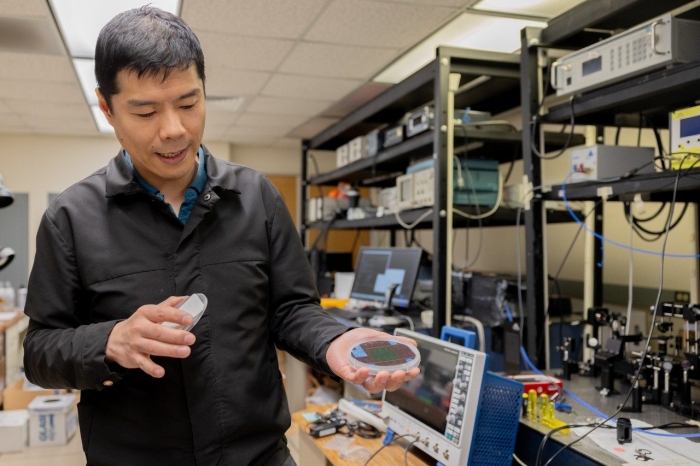 courtesy: Virginia Tech
courtesy: Virginia Tech
- Written by Moderator
The future of health care is in our cells
FeaturedWith a groundbreaking technology called nano-optoelectrodes, Virginia Tech associate professor Wei Zhou is working on a new way to make health care more personalized.
Dr Zhou's lab is developing a Swiss army knife of small, bio-interfacing tools: nano-optoelectrodes. As hybrid electrical-optical devices and sensors, nano-optoelectrodes are capable of reading both biochemical fingerprints and electrical activities of a cell’s molecules in a continuous, real-time stream. The multifunctional nature of the optoelectrodes sets it apart from other bio-interfacing tools because it fuses a nano-antenna — a microscopic version of the large-scale antennas we interact with every day, such as radio towers — and nano-electrodes, which are devices that deliver or take out electricity, like welding tools or batteries.
“Our nano-optoelectrodes provide higher quality intracellular information and can use machine learning to recognize and understand the detailed patterns between biochemical and bioelectrical activities inside cells,” Zhou said. “We can really understand, at the cellular network level, the patient, the cancer, and drug therapies. It can be very helpful to find the best therapeutic plan for personalized treatment.”
The research results are published in this article.
Read the full article at Virginia Tech News.
Visible Legacy Comment
While Zhou is starting with a single cell and antenna, the future of his research is to create and deploy large-scale nano-optoelectrode arrays in wearable or implantable devices that go beyond today’s fitness trackers, smartwatches, and blood pressure monitors. Beyond Cancer therapies, it’s ultimately a scalable, real-time information conversion interface between cyber-physical and biological-biochemical domains – it can be for the human brain, or it can be applied within a wastewater system. Dr Zhou is pursuing collaborations in biology, food science, virus and bacteria detection, and even chronic wound monitoring. This platform technology and the hardware infrastructure can lead to many different applications and is worth evaluation by industrial licensing professionals. Please follow the link below to see more from Dr Zhou's Lab.
Additional Info
-
Navigator:
 Explore the map in Navigator
Explore the map in Navigator - Widget:
- Caption: Virginia Tech Nano-optoelectrode Arrays from the Dr Wei Zhou Lab
Related items
- Federal funding will help WSU professor develop technology to recover rare earth elements
- Unlocking the brain: Peptide-guided nanoparticles deliver mRNA to neurons
- Scientists Get to the Bottom of COVID’s Worst Pediatric Complication
- WSU-inspired national gene-editing task force begins work
- Multi-Tasking Wearable Continuously Monitors Glucose, Alcohol, and Lactate
